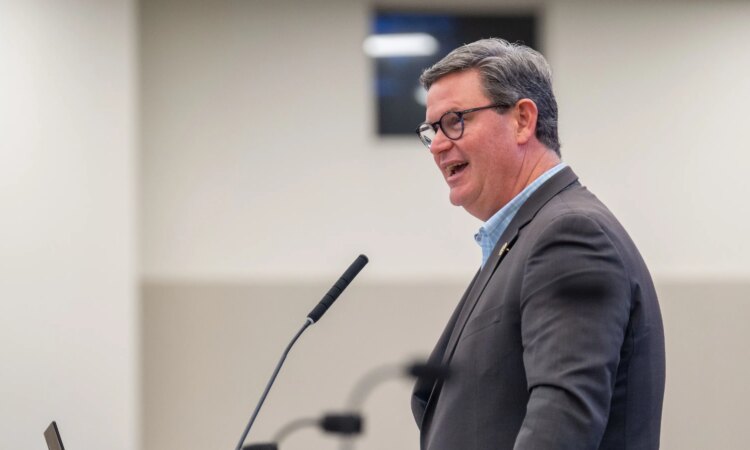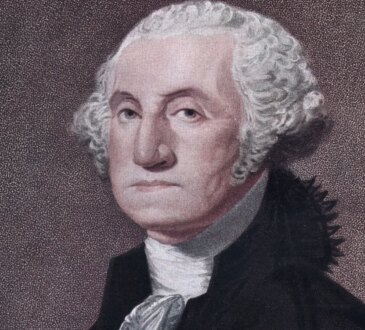
- Tallahassee’s mayor warned that eliminating property taxes could wipe out the city’s parks and recreation department.
- Proposed constitutional amendments to reduce or eliminate property taxes are being considered by the Florida Legislature.
- Local officials argue the proposals would threaten the functionality of city and county governments.
Tallahassee Mayor John E. Dailey told Leon County’s delegation to the Florida Legislature that the state capital would pay a steep price if voters agree with Gov. Ron DeSantis and eliminate property taxes in the Sunshine State.
The price tag for the Florida House’s proposed constitutional amendments that either reduce or eliminate property taxes, according to Dailey, is Tallahassee’s award-winning parks and recreation department.
“It will wipe out parks and recreation,” Dailey said during a pre-legislative session public hearing held Oct. 27. In attendance were Sen. Corey Simon, R-Tallahassee; Rep. Jason Shoaf, R-Port St. Joe, and Tallahassee-area state representatives Allison Tant and Gallop Franklin, both Democrats.
Shoaf is the dean of the delegation and chaired the meeting. The four lawmakers took testimony from more than 50 individuals during the three-hour meeting, with Shoaf often allowing speakers to exceed the three-minute time limit he set.
The hearing is part of the delegation’s preparation for the 2026 legislative session that begins Jan. 13 and provides constituents an opportunity to request money for projects and for changes in policies.
Property tax reform is a policy proposal that creates doomsday scenarios for both Leon County and the City of Tallahassee, administrators there say.
All seven proposals by a House committee would keep in place the property tax portion that pays for public schools and public safety, and that creates the need for cities and counties to cut spending elsewhere.
Leon County assistant administrator Nicki Hatch told the lawmakers the proposals would significantly change local governments: “The most severe proposals threaten the functionality of local government as we know it. We seek your support in protecting and preserving the county’s ability to deliver the high-quality services that we provide.”
Afterward, Simon said he supports a property tax overhaul as a way to eliminate wasteful spending. He explained state CFO Blaise Ingoglia has said he uncovered massive amounts of wasteful spending, not necessarily in Tallahassee and Leon County, but elsewhere.
“We’re seeing millions and millions of dollars that are being mismanaged. So I think it’s important that we continue to look at this issue to make sure that we’re doing what’s in the best interest of the taxpayer,” Simon said.
Tant sits on the House committee that drew up the proposals. She pulled from her notebook a multi-colored graph that showed, after accounting for schools and law enforcement, 10 cents out of every tax dollar is left to pay for public works, wastewater management, libraries, parks and other services.
“At the end of the day, you’re going to start charging a fee for going to parks. Essentially, in order to use our, quote, public parks, you’re going to pay. That’s where we’re going to be … (Dailey is) absolutely right about that,” Tant said.
By the numbers
The city’s Parks and Recreation Department is a National Recreation and Park Association Best in America award winner for its maintenance of 3,400 acres of parkland. The city said last year there were more than 550,000 participants in parks and rec programs; the department oversees youth and adults sports leagues all-year round.
Earlier this year, when Tallahassee won the All-America City Award, Parks and Recreation was cited as a key part in the city’s community-building efforts that led to the honor.
“I love our city parks,” Simon said. “But I want to make sure that the money we’re getting from taxpayers … we’re spending that money the way it should be.”
Dailey said the city collects about $75 million in property taxes and spends about $80 million on the Tallahassee Police Department alone. Property taxes make up less than 10% of the city budget; half of the $1.2 billion spending plan comes from city-owned utilities that provide electricity, gas, and water.
Franklin said if voters approve any of the property tax proposals, local governments will be forced to become more creative in how they impose fees and spend money.
Franklin, who grew up in Tallahassee, said the city could spare the parks budget and cut elsewhere, such as not building roads, installing fewer traffic lights and stop signs, among other things. “Actually, what I think would happen is an increase in the cost of utilities,” Franklin said.
James Call can be reached at jcall@tallahassee.com. Follow on him Twitter: @CallTallahassee.




